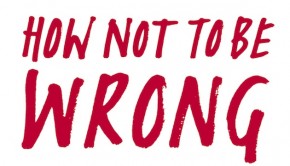The Virtues of the Table: How to Eat and Think by Julian Baggini
| Press reviews | Buy the book | Have your say |
Blurb: How we eat, farm and shop for food is not only a matter of taste. Our choices regarding what we eat involve every essential aspect of our human nature: the animal, the sensuous, the social, the cultural, the creative, the emotional and the intellectual. Thinking seriously about food requires us to consider our relationship to nature, to our fellow animals, to each other and to ourselves. So can thinking about food teach us about being virtuous, and can what we eat help us to decide how to live? From the author of The Ego Trick and The Pig that Wants to be Eaten comes a thought provoking exploration of our values and vices. What can fasting teach us about autonomy? Should we, like Kant, ‘dare to know’ cheese? Should we take media advice on salt with a pinch of salt? And can food be more virtuous, more inherently good, than art?
(Granta, 2014)
John Crace’s Digested Read | The Guardian
Roger Lewis, The Times
“Where Baggini is particularly good is in bringing his sceptical, forensic methods to bear on the “new food orthodoxies”; the propaganda we receive about sustainable, organic, seasonal and local produce. Baggini brilliantly picks apart the contradictions and inherent hypocrisies, because to eat well, for society not to starve, we need “numerous supply lines” — that is, access to alternative sources of grain and meat, should harvests fail, as they often do in rainy, cramped Britain. Importing, exporting, trading and exchange with neighbours: this is how civilisation evolves and strife is avoided. There is no point in being “superior on ethical grounds”, not when there are 9 billion mouths to feed across the planet.”
Read full review (£)
Tom Payne, The Telegraph
“His preaching of moderation is sensible, and he’s frank about the impossibility of knowing where all food comes from. But readers might need more convincing about how one moral consideration outweighs another. A product that is organic and good for the environment might not be so good for livestock if they’re denied antibiotics. Finally, I wasn’t sure about his understanding of pleasure … But Baggini’s open-mindedness in the face of received opinion suggests he won’t mind our objections: if his mission is to make us find out more about food, and to reflect on those findings for ourselves, then The Virtues of the Table will be a great success.”
Erica Wagner, Financial Times
“What Baggini is best at is picking apart the casual (and sometimes not-so-casual) assumptions we make about the food that’s in front of us … This book might cause you to look again at some of the choices you make about what to eat, and how you go about eating it. There are some very relaxed recipes at the end of each chapter; they are the work’s least convincing aspect. Not even the greatest philosopher could persuade me that there could ever be any joy in a rice salad.”
Steven Poole, The Guardian
“He expertly dismantles self-congratulatory assumptions about the evils of large industry and chain restaurants or the superiority of organic food and local eating … Nonetheless, I remained serenely unpersuaded by his overall argument, which is that those of us who aren’t already self-regarding lifestyle gluttons should spend more of our awfully limited time pondering food.”
Alex Renton, The Observer
“This is not a book for me, or for anyone who thinks being serious – and overserious – about food can be a lot of fun … I think Baggini was writing in some fear of the Guardian‘s Steven Poole, whose hilarious savaging of self-regarding foodism in You Aren’t What You Eat, published last year, he quotes more than once. Baggini appears to be nervous of being serious about food, as much as he’s frightened about being too dense, or even philosophical, for the pop-philosophy/self-help shelves this book is aimed at. That leads him to be bland.”
Buy the book
Amazon | Foyles | Hive | Waterstones
OMNISCORE:












